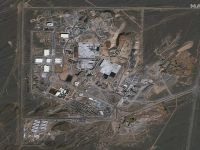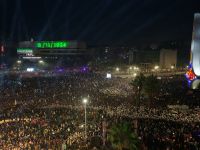It’s been said that when the United States sneezes, the world catches a cold. When America’s World Trade Center was struck by terrorist attacks a decade ago, the trickle-down effects of financial losses in every sector were felt around the world. India has been feeling the financial fallout of September 11 and subsequent terrorist attacks ever since, said Shrikanth S., industry analyst, Business and Financial Services, Frost & Sullivan from Mumbai.
“Over the last 10 years, the incidence of terror attacks has increased significantly. The terror attacks have tested the resilience of the people. But it has been resilience by force and not by choice. The terrorism can be both due to extremists in India and from foreign countries. The government is slowly modernising its police force and also taking steps to centralise the intelligence data,” Shrikanth S. told Gulf News. “From the business standpoint, they spend money on security checks and screening, in addition to insurance to protect their interests. Hospitality, tourism and civil aviation industries are typically affected more than other sectors in the aftermath of a terrorist strike. In India, gross earnings from foreign tourists are approximately one per cent of gross domestic product (GDP).”
Putting a price on the financial impact visited upon India and other countries from terror is difficult to pin down, he said. When terrorists strike Mumbai, for example, an ensuing slowdown hurts all of India given that more than five percent of GDP comes from the city’s industrial sector. “The annual impact of terrorism is extremely difficult to quantify due to loss of human resources, investors sentiments, political instability and long term financial loss,” he said. “The Indian government has assented to set up the National Intelligence Grid (Natgrid) which might assist in law enforcement and help the intelligence agencies to get quick access to information about terror suspects and internal security threats. India, being a victim of terrorism, strongly condemns the September 11 attacks and can empathise with the US.”
Multiple sectors
The US was hit hard financially after Al Qaida downed the Twin Towers in New York. “The September 11 attacks affected multiple sectors in the United States economy. The labour market weakened as unemployment rose. Manufacturing, construction, travel, retail, entertainment, hospitality and temporary help industries shed jobs and this brought down the consumer buying power,” said Shrikanth S. “Also, the Iraq war that happened later in 2003 caused a huge fiscal deficit in the United States budget.”
“The September 11 attacks however, resulted in the US Government engaging in two costly wars in Iraq and Afghanistan and also increased their defence and homeland security spending. This contributed to an increase in US debt which is estimated to be greater than $14 trillion in 2011 [close to 100 per cent of US gross domestic product] and lead to Standard & Poor’s downgrading of the US economy,” he said. Shrikanth S. said when the American economy finds a better footing, the world will benefit.
“It is believed that if the US government and the European governments undertake austerity measures and execute plans to reduce their fiscal deficits, the global economy may not witness a recession.”








